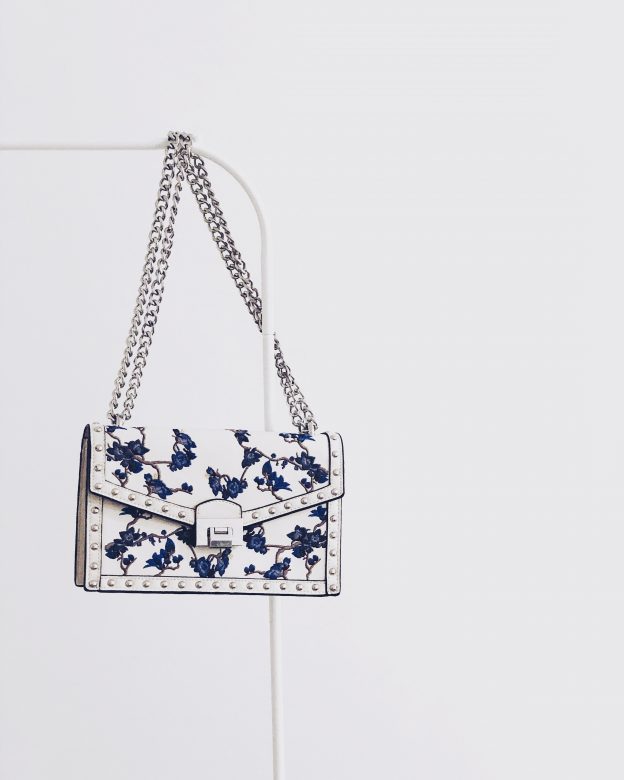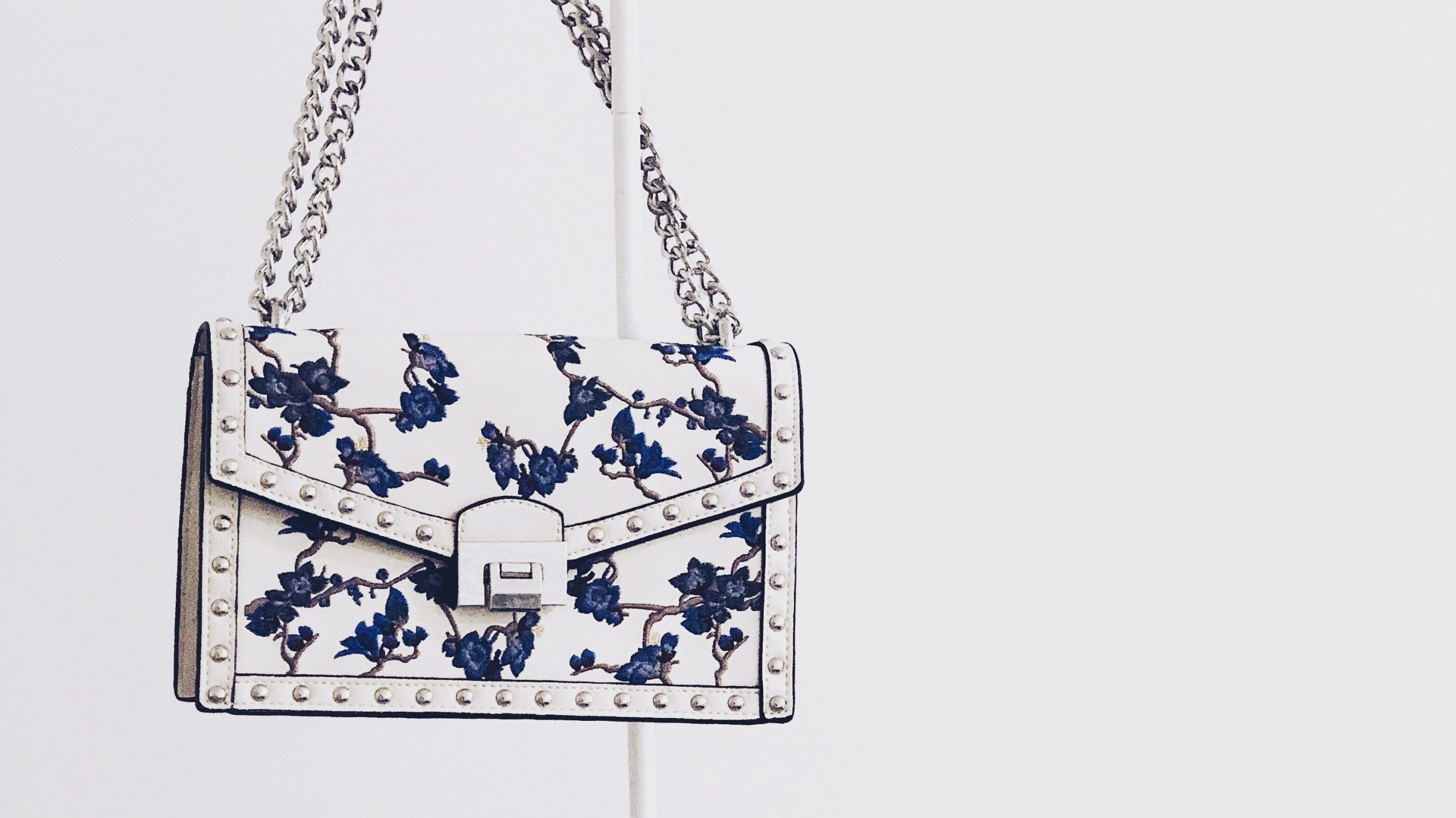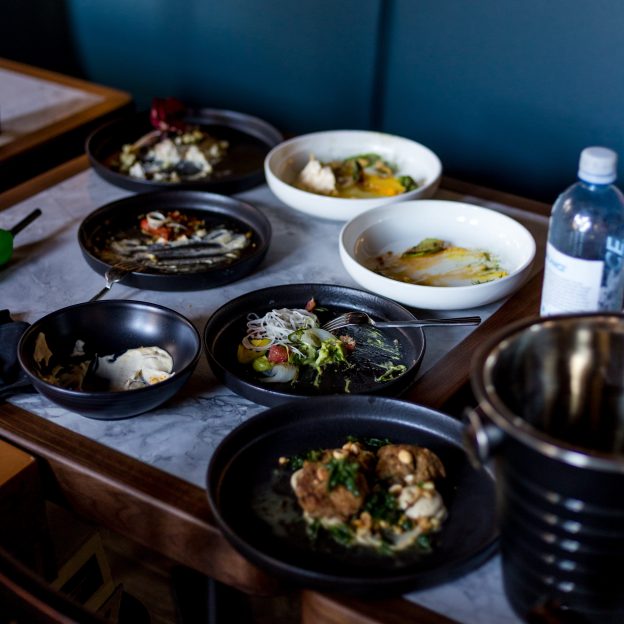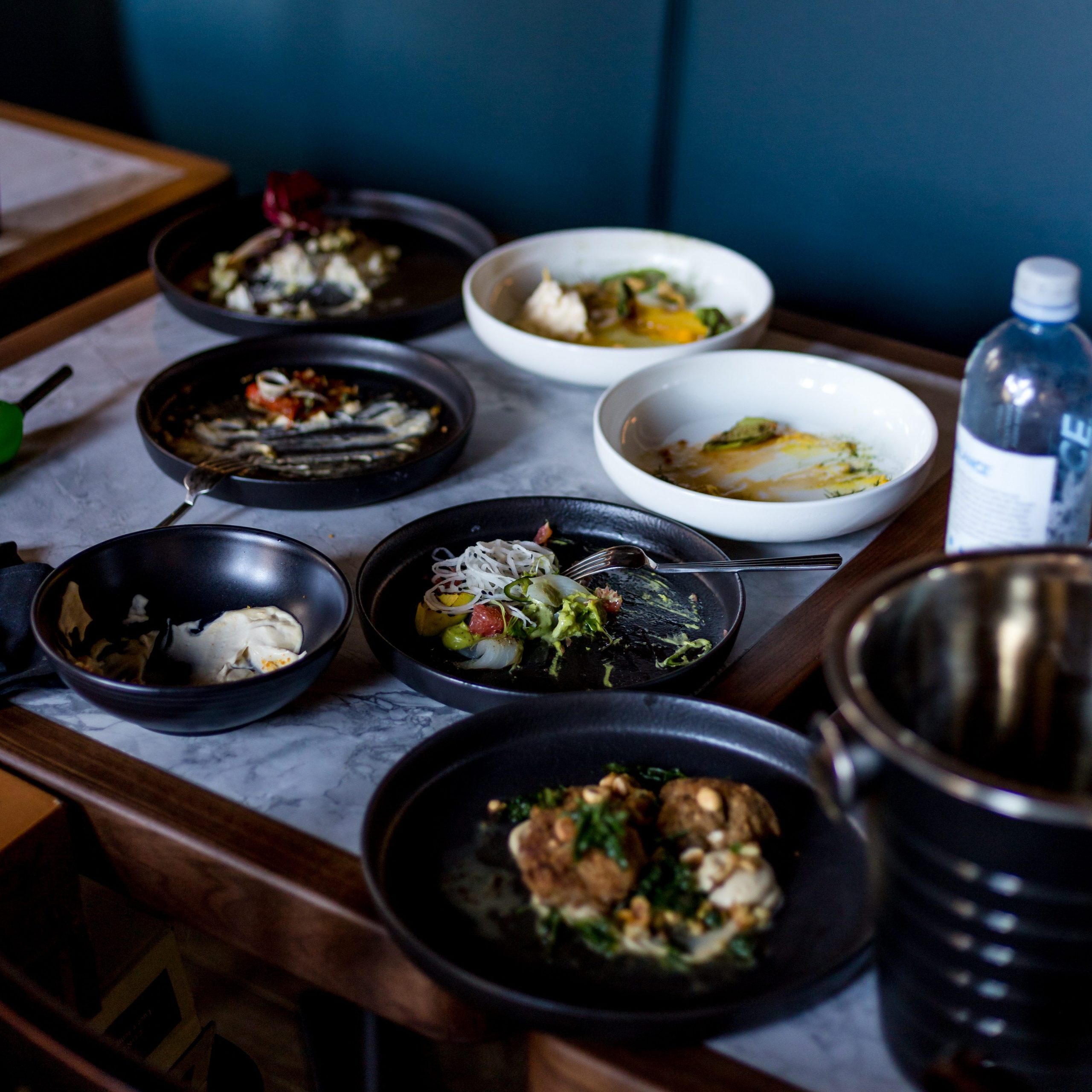There are some brands that have been so successful that their brand has become synonymous with the product itself. When I talk about doing the hoovering I’m not neccesarily using a Hoover brand vacuum cleaner. When American kids ask for a Band Aid I understand aren’t really fussy about what brand plaster they get for their cut. A Biro might be any type of pen.

There are also some people who insist on referring to many of their belongings by their brand name. It’s relatively common with people who’ve put a lot of money into something and want you to know – they aren’t parking their car, for example, they’re parking their Tesla.
I’ve noticed there are quite a few parents who do the same thing with baby gear. There is a huge, sometimes predatory, market for brand name baby stuff which preys on parents fears of having their baby go without something they need.
Several times I’ve had to look up what someone is talking about when they refer to a brand but mean a specific piece of baby kit. For example, you might put your baby in their Bjorn (bouncer chair), you could ask if you can take the Doona on a plane (pushchair) or you might comment on how much the baby loves their Skiphop (activity chair).
I think brand name people like feeling like they are in the metaphorical club. If you’ve got the brand name kit then you know that your baby isn’t going without right? Sometimes it seems like pride when people refer to regular items by their brand name. It can seem a bit exclusionary, talking about a baby bjorn as if it’s the only bouncer chair worth having, and at around $200 USD, there will be a lot of babies who aren’t luck enough to experience the luxury of a Bjorn. But overall it seems to suggest insecurity. There are a lot of worries when you’re a new parent. Getting baby kit with all the right brand names attached can feel like a kind of security. You know you’ve done the right thing by getting the right brand of bouncer, chair, food steamer, carrier, sleepsuit etc. But it’s an expensive kind of security and temporary since babies are renowned for outgrowing things in the blink of an eye.
I don’t think we are tempted to become “brand name” parents. We’ve got a few of the brand name baby kit – we got it second hand. It’s nice enough but not dramatically different from the lesser, inferior brand items we have. Most importantly, I don’t think the baby minds and his opinion is the only one that really counts. I also don’t think he’s going to let on when I don’t bother correcting another mum that his ‘Skiphop’ is actually a second hand (or possibly third or fourth hand) Fisherprice that we were given for free.

Sources of Efficient Happiness
When something has a good ratio of happiness to expense, we tend to refer to it as an ‘efficient’ source of happiness. Having a few cheap but enjoyable experiences a week has been vital to us sticking to our frugal ways and stops us from feeling like we are sacrificing too much. Here are my current top 5 sources of efficient happiness:

Eating cheap local foods
Living in one of the most expensive cities in the world means eating out cheaply isn’t always the obvious choice. However, when you’ve been here a few years you can easily build up a repertoire of cheap, enjoyable places to eat. In Asia a lot of these are various rice and noodle dishes, but cities are cosmopolitan places, so we know where to find cheap pizza by the slice, a ‘secret’ (or unlicensed) Nepalese restaurant and hole in the wall sushi bars. Going out to eat and having it cost about the same as a home cooked meal is a guilt-free happiness we can enjoy each week.
Home cooking
Eating well and eating a wide variety is a big source of efficient happiness for us. Apart from eating out a couple of times a week, cooking is a three-fold efficient happiness. First, it’s an activity in itself. We enjoy cooking together and making new recipes. Second, home cooking can be cheap, especially when you batch cook. We try to make at least one big one pot meal at least once a week so that we can freeze two or three extra portions for an easy weeknight dinner. Finally, you have to eat anyway, so spending money on ingredients for an interesting home cooked meal can feel like a minor cost.
Visiting local markets
We are lucky enough to live near to wet markets, which a lot of locals take for granted and a lot of ex-pats find intimidating. These markets are fantastic, they have an ever-changing rotation of items according to what is in season or in good supply There are regular, reliable stalls, which carry your weekly essential groceries and where after a few visits the owner will recognize you and often give you little freebies (I got given a guava last week!). New market stalls will pop up for a couple of weeks at a time selling all kinds of things, often cakes and desserts, snacks, exotic ingredients and local crafts. Just walking around the markets can be an experience in itself.
Walking in green spaces
There is an evening hike we often do in the evenings after work. On this walk, depending on the time of year there are various types of wildlife. One of my favourites is seeing fireflies in the autumn. Getting out and ready for a hike sometimes seems like a chore, but only until I reach the start of the hiking path and then it’s a great way to unwind and forget about work, as well as a good time to talk without any screens or distractions.
The Sea
This one is just for me, Converse isn’t such a big fan. We live pretty close to the ocean. Just seeing it is relaxing and renting a kayak or paddle board is relatively cheap. Even the journey to the ocean is great – catching glimpses of it as you wind down the roads towards the water. I’m not a big fan of just lying on a beach, but going out on the water always reminds me how lucky I am to live in Asia. It feels so far removed from grey London drizzle.
Homemade Coffee
This one is just for Converse. He really, really likes coffee. It’s not the cheapest source of happiness, but it makes the efficient list because of how happy it makes him. It also takes a reasonable amount of effort. He buys the locally roasted beans from a nearby factory building, but they are high quality and not the cheapest. He then grinds them at home (with an electric grinder) and fills metal, reusable pods to put in a Nespresso machine. He likes that despite the extra work involved he has avoided paying money to Nestle to buy their disposable pods, he’s limited the amount of waste created and he’s got higher quality, freshly ground coffee from a local seller. I don’t love coffee like he does, but the smell of freshly ground coffee is great and it makes the apartment smell amazing.

Our Money Rules
This is an idea popularised by Ramit Sethi that we really liked. We decided to create our own. It’s a nice way to set rules based on intentionality. By discussing our personal money rules we are being intentional and really considering what is important to us. While these rules are more guidelines than anything, creating them is important in putting the “personal” in personal finance.
Other people will have different priorities – that’s ok with us! If you don’t agree or don’t see how our rules could ever be applicable to your own situation, we don’t blame you. They’re our rules. Make your own!

1. Money should never be a factor in deciding whether to have an appetiser or dessert.
This is similar to ordering a diet coke with a bacon double cheese burger, large fries and apple pie. If you can’t afford the calories of a coke, then you can’t afford the rest of the meal. We feel if you have to seriously consider the cost of starters or desserts you probably shouldn’t be in that particular restaurant. Also, life is too short to worry about this! This we stole from Ramit Sethi. We are disciplined enough to have the majority of our financial life on track, we’re not going to sweat a dessert now and then.
2. For any flight over about 6 hours, fly business.
This is especially true since Covid-19. If you’re going to wear a mask for hours on a flight, go through Covid testing when you land and possibly be sent to a quarantine hotel, it’s worth going business. Maybe some people love flying. We don’t. We’ll pay extra to make it that little bit less painful.
3. Health is worth the cost.
I’ve needed hospital care a few times over the years and I’ve paid to go private. It’s expensive, but I regret nothing. The private system is undoubtedly luxurious in comparison with competent but cold government care. Medical issues are stressful enough without having to navigate long wait times and uncomfortable facilities. Let me be clear, I am pro government-funded universal healthcare, but I also really appreciate having the financial option to go private for certain long term issues. We happily put money to this instead of investing or saving it if necessary.
4. Have an emergency fund in multiple countries.
We have emergency funds in our home country as well as the one we live in. We are able to access money in each country, and we are able to help family out quickly back home by transferring them money if we need to. Wherever you have assets or people you care about you should keep an emergency fund. We keep around 3 months of expenses across all locations, but the exact amount varies as our expenses would be different in each place. While we don’t hold a huge amount of cash (our ETFs are pretty liquid and we have access to credit if we have a big emergency), having instantly accessibly money in different places is something that helps us sleep a bit better at night being foreigners in a land that doesn’t always feel welcoming.
4. Don’t question prices on life-improving items.
For example, high quality, functional electronics we tend to pay whatever we have to in order to buy the best product for our situation. We do then tend to look after these things for years and only update when we have to. Our phones and computers commonly reach 6 years old or more before we replace them. But we don’t spend like this on everything. Most of our furniture is cheap from Ikea, our bed was free and many of our basic appliances are mid-range and have lasted years. We don’t tend to pay extra for appearance, but we do pay extra for functionality and reliability, especially if it’s something that we need to use often.
6. Save 50% of our income.
This is the amount that works for us right now. No matter where we moved to, we would always try to adapt to a lifestyle to replicate this as closely as possible. We aren’t judgemental of people who can’t do this (we couldn’t for most of our working life until this point), but once we realised we could save 50% or more, we did. We didn’t let our lifestyles inflate to put us past this point. While we wouldn’t be critical of people who just can’t save this much, we do see a lot of people on similar salaries to us who would claim they can’t save much of anything at all; they can. They just choose not to. So, once you’re on good money, we’d suggest people really reflect on what they need verses what they want.
7. Be disciplined about tracking spending.
We do this so that we have a really clear idea of how much we spend and what we spend it on. We didn’t start by budgeting and limiting ourselves. We began with tracking for at least 6 months. We think this is where everyone should begin as you may be surprised how off your estimates can be! This has been more productive than just setting an arbitrary amount for a budget based on what you think (or guess) you should be spending. Inevitably you’ll learn you spend more on some things than you imagined and more on others and get discouraged. Know thy self by tracking non-judgmentally first and then thinking about changes you might want to make.
8. Have a dividend day budget meeting and celebration.
It’s important to use to celebrate progress successes, as well as to have important discussions about what we want the future to look like. We celebrate every quarter with cake. We complete a template document which encourages us to reflect on what has gone well as well as what is coming up and what we want to achieve. We set goals for the next 3-12 months and we look at where we are in our overall journey. Some dividend days are more celebratory and fun, others are more serious and a time for decision making. Either way we make sure we do this every quarter.
9. Put time and effort into being a team.
While this isn’t obviously a money rule, when you see statistics about money being the No.1 cause of arguments and divorce it makes more sense. For us, it goes well with the dividend day celebrations. This is a specific time when we check in about how we are doing, what we are happy with and what we want to do differently. It helps us stay on the same page. Being a team is something we always strive for. Our long term aims rarely differ, but sometimes our short-term behaviours can be at odds and so we need to take the time to talk things through and reach a compromise. Rarely do we argue over money (if ever), because any small differences of opinion get worked out way before it gets to that point. If only we could be so harmoniously in accord in all aspects of our lives!

Money Memories From Childhood (Part 2)
Converse asked me recently what money memories I have from my childhood and what advice I remember being given. I don’t have a single clear memory of specific advice. What I do have is an ongoing memory of always wanting to know how people who appeared to be rich got rich.

“How do people afford this?”
When I was a child, around the age of 10 I started asking about what big things cost and how people could afford them. I would soon be moving to secondary school, which seemed like a huge and vital step towards becoming a grown up. From my childish perspective it seemed that paying taxes and complaining about bills was just around the corner. So I started paying more attention to how much big things cost, not just things I wanted to buy now (sweets, toys, magazines) but big grown up things (cars, houses, holidays).
My parents weren’t badly off, but it always seemed like most other families like my cousins and my friends as school had a lot of things my parents said we couldn’t afford. New cars compared to our second-hand ones, big detached houses in cul-de-sacs, holidays that included words like safari, après-ski and all inclusive. I’d always known that this was because these families had more money than us, but now I wanted to know why. I wasn’t ungrateful for what my parents provided, but I could see that there was better out there and I wanted to know the steps towards an adult life that included holidays that you flew to rather than drove to and a home where when something broke you replaced it immediately rather than going without for months while money was saved up.
The answers I received were largely frustrating. They’re very lucky. They are very clever. They have a job that pays them lots of money. That third option seemed to be the key. Luck is great but even then I knew they weren’t all lottery winners. And cleverness is great but how do you turn that into a big house and a new car? You find a job that pays you for your cleverness.
My knowledge of well-paying jobs was the same as most children. Who gets paid a lot? Doctors. Who else? Successful businessmen. The boss. But we didn’t know any doctors. We didn’t really know any business owners either or anyone I’d heard described as a boss. I realise now that’s because no one would use that word. What job do you do? I’m a boss. Bosses use confusing combinations of titles like regional sales director or senior management consultant.
As I got much older and did go out into the world and find a job, I understand the reason for my parents vague and unsatisfying answers. They didn’t know. Some people were much more well-off than us, and my parents weren’t entirely sure how that happened, they assumed it was a combination of luck, cleverness and large salaries, and maybe it mostly was. But I now I’m in a position where I can fly business class to exotic locations. I live in a city centre where driving is impractical and detached houses are for billionaires, but I do have a nice apartment with a sea view and a pool and a clubhouse with more facilities than I’ll ever realistically use. Having a good salary helps, but spending habits are more important.
I also have a better understanding that the appearance of wealth doesn’t necessarily equate to healthy bank accounts and security. My parents and adults their age who I’ve known since childhood are approaching, or have reached retirement. I see now that some of those people are in situations where they will need to continue to work well into their late sixties. Others had to dramatically alter their lifestyles; that new car, it turned out, was a company car that went with the job. The house needed to be downsized because the mortgaged still wasn’t paid off as they retired. In some ways it seems like they’ve done well – they enjoyed these things for years and only have to give them up in retirement. However, giving them up doesn’t look easy. Lifestyle inflation is a real thing and it’s not an easy adjustment to make. There also seems to be a sense on entitlement that comes with owning these things (or appearing to own these things for so long), so that by the end they feel like they are owed them. Also, when someone’s places importance on having nice, expensive things, they seem to start to really, really care about them, so that giving up a company car seems like a personal affront, an insult, a massive step down.
It’s led me to conclude 3 things:
- Just because someone appears to own something, doesn’t mean they actually do.
- Don’t get attached to, or measure your worth by your material possessions.
- It’s not easy to go backwards when you’re accustomed to something, so take your time, you’ll get there when you get there, don’t be in a rush to inflate your lifestyle before you can afford it.

Do You Like To Travel, Or Do You Like To Go On Holiday?
It seems like everyone says the like to travel. It seems like most people mean they like to go on holiday (or vacation for our North American readers). There is nothing wrong with going on holiday. Holidays come in all shapes and sizes and, by design, are meant to be enjoyed. Holidays also have connotations of taking a break from real life, of spending money and enjoying yourself in a place you don’t usually spend time. Holidays usually come at an expense, even if you shun 5 star hotels in favour of camping in a national park there is still going to be some cost of travel or equipment.

The best financial decision I ever made, though I had no idea at the time, was to travel from the UK to Asia and begin working there. When I was living and working in the UK, we struggled for to afford a 5 day holiday to Morocco, which turned out to be the worst holiday I’ve ever been on. Hundreds of pounds, which we’d saved for nearly 3 years, were spent on what turned out to be a very disappointing week. My experience was that holidays seemed to be both expensive, temporary and sometimes not even that good.
I still wanted to travel, but holidays didn’t seem to be working for us. That trip to Morocco was the only holiday Converse and I took while living in the UK. We could have saved up for another three years and tried again, but instead we decided to find work and move to another country. We made a list of countries we would not consider living in, and applied to every suitable job that came up anywhere and everywhere else. I told my employer that I’d be applying for work abroad in December, I spent my Christmas working on applications, and by February I’d been offered a job in a city in Asia. One month later Converse had been offered a job in the same city too.
At the time, this just seemed a great way to explore the world. We weren’t just going to visit a foreign city, we were going to live there and really explore it. We knew the salaries were high, but we assumed this was because living costs would be so expensive. We imagined living in an apartment the size of a shoebox and eating cheaply at street food stalls because it would be all we could afford. This was not the case. Our jobs are just more lucrative in Asia.
The number one piece of advice I’d give to people looking for a larger salary is to move. Travel. Whether this is in the same country or to the other side of the world, it doesn’t matter. Go to where the money is. Take the risk. At the very least apply, see if you can get an interview, see what pay you’d be offered.
The salary wasn’t the only benefit to my finances. It challenged my assumptions about possessions. I had ingrained beliefs about what someone in their mid-twenties should own: matching bowls and plates, a bookshelf’s worth of books, a car, plants, shoes for every occasions. But all of these things had to be given away in order for me to move. I arrived with two suitcases containing all my worldly possessions. At the same time, old school friends were starting to settle down, buy houses and fill them with stuff. Once I’d moved to Asia, I felt no envy over this. If anything, possessions, no matter how nice, felt like a weight. Something holding me down in one place.
Even if I hadn’t had a profession which was highly paid in Asia, I would still tell my younger self to find a job in a different city, to either find work that is better paid in a different location, or to find work which is the same pay but in a location with a much lower cost of living. Apart from saving more money, it was incredibly important for me to reduce what I owned down to a couple of suitcases, or to what I could fit in the back of a car. Arriving in a brand new city is like a new slate. It broke old habits that I didn’t even realise I had. I was able to shape what I wanted my new life to looks like in a very intentional way.
Think about the top 10 places you’d like to go to on holiday. The chances are high at least one of those places has a job that you’d be suitable for. Your first impulse might be to imagine all the reasons why you can’t pack up your things and travel, but instead, try to imagine everything that might change for the better if you did.

The Appearance of Money
What does it look like to be rich? My ideas of what being rich looks like have changed drastically within the last ten years. When I was in my mid-twenties earning twenty something a year I had a typical, two dimensional view of what money looked like. Fast cars, shopping trips, holidays to Saint Tropez, watches and jewellery. Basically living you’re out of a magazine. I took everything reality TV shows showed me at face value. If people have expensive things, it’s because they can afford expensive things and ergo must have money.

Now that I’ve seen a little more of the world and spent time with people who have the fast, shiny cars and international trips to 5* hotels specifically with the purpose of shopping in a new city, I’ve wised up a bit. The idea of what you can ‘afford’ is an interesting one which I’ve explored in another post.
I’m amazed at how many people would say they ‘afford’ a luxury item because they are able to put it on their credit card. If you have to pay with credit then you really can’t afford the Rolex, those Louboutins or that staycay. Just to be clear, I am definitely not talking about people who use credit cards but pay them off in full every month, I’m talking about people who rely on consumer debt to project a lifestyle which looks like wealth. It’s the kind of wealth which lacks depth. If you don’t look too closely it appears glamorous, frivolous and care-free. Rarely does it stand up to a closer examination. The people who make the biggest show of displaying wealth seem also to be the most affected by income changes. A missed bonus check, an unexpected redundancy, a big client moving to another city and suddenly they’re downsizing to a smaller apartment, selling the Jaguar and you hear on the grapevine that their cheques have been bouncing.
What does money look like? I don’t think anyone knows. But I am certainly far less inclined to think of those who like to flash their cash as wealthy. My first thought when I meet someone like that is to wonder how insecure their lifestyle is. People with those kind of spending impulses and who like to show off their riches 1) probably haven’t had money for very long and 2) probably don’t have the kind of spending and lifestyle habits to sustain the level of wealth that they’d like to project.

Can You Afford It?
What does it mean to afford something? How do you know what you can afford. Until examining my financial habits when I started FIRE, I didn’t give much thought to how differently the concept of ‘affording’ can be understood.

I had a conversation recently with a friend about buying a luxury item. It’s something I definitely don’t need, but I’ve wanted it for a while, and it will last me a long time. It costs around $200. My friend and I were walking past a shop and she bought herself one. Spontaneously, just like that. I looked around with her and chose one for myself, but I decided not to buy it until two pay cheque’s time. She laughed at me for waiting and told me I could definitely afford to buy it now.
To a lot of people who aren’t aiming for FIRE, she’d be right. I’ve definitely got the money in my bank account. I could have spent that $200 and it wouldn’t affect my ability to pay rent, or bills or buy groceries. In fact I probably wouldn’t even notice it was gone other than it was $200 less I was saving that month.
Although I have the means to buy it, I don’t feel like I can afford it. Buying anything that is entirely a luxury isn’t very FIRE of me, so the least I can do is plan to buy it in a month when I know I don’t have any other big expenses. Waiting 2 months (or 2 pay cheques; I’m increasingly measuring time in pay cheques) didn’t seem like much of a hardship. It’s a big purchase and it will give me time to be sure that’s definitely what I want to spend my money on.
My friend and I both work for a company that has a very clear and transparent pay scales. At work everyone knows how much everyone else is getting paid. My friend thinks its silly that I’d wait for a $200 purchase when she knows that I’m paid more than her (we are talking a couple of thousand USD a month more). It’s not always easy to explain that my reluctance to spend money on something is because I don’t feel I can afford it, especially with people in the same industry as me who have an idea of my income. I’ve been telling anyone who questions it that “I have savings goals to meet”.
Most people’s definitions of ‘affording’ seems to fall into three broad categories: I can access the money, therefore I can afford it. These are the people who will use credit cards and loans to pay for things they don’t need. I’ve put aside enough for rent, bills and groceries etc and I still have money in my bank account, therefore I can afford it. These are people who will spend money without thinking of long term savings or investments. I’ve put aside enough for rent, bills and groceries etc and saved a good percentage of my income and I still have money in my bank account, therefore I can afford it. I’m definitely in the latter category, and the percentage of my income that I’m saving would seem crazy to many people (between 60%-70%).
My friend was very happy with her purchase. So much so that she spent another $200 this month on getting a second one. I am still waiting for my pay cheque in 2 weeks to buy mine. I don’t feel envious or jealous that I can’t spend my money as easily as she can, because the truth is I don’t really feel she can afford to either. When I told her I wouldn’t spend the money yet because of my ‘savings goals’, my friend joked that I’ll become a millionaire because I wait until my next pay cheque buy things, because I ride the bus and because I shop at the market. I told her ‘that’s the plan’.

Lifestyle Acceleration
I didn’t experience lifestyle creep; I experienced lifestyle acceleration. I recently found an old pay cheque from seven years ago. It was my last pay cheque from working in the UK before I moved to Asia. I put it next to the following month’s pay cheque I received when I started my new job. I had jumped from $1600 USD one month, to $5000 the next. It’s safe to say there was no ‘creep’. This coincided to a move to one of the most expensive cities in Asia. This felt more like being hit with a lifestyle sledgehammer.

In my experience, lifestyle acceleration has three stages:
- This is too good to be true. When you put your last month’s pay cheque next to your new one and see the difference is several thousand dollars more, it can be a bit overwhelming. In my case my pay literally tripled. It’s not that it didn’t feel good, it did! But it didn’t feel secure. I felt incredibly lucky, but I also felt like it could all disappear again as easily as it had come. In reality of course, it hadn’t been easy. It was the result of working incredibly hard for many years, but it still felt like luck because it was so sudden. It felt more like a lottery win. It happened so suddenly my lifestyle didn’t change much. I was still very cautious with my spending. Added to that was the fact that I’d just moved to a new country so I was especially worried about additional and unforeseen costs. I knew the cost of living was going to be much higher, so even though my pay was high, would I still be able to afford to live comfortably? At this stage of lifestyle inflation I started to spend more, but I was still living well below my means.
- This is great! After a few months I got more comfortable with spending more. Yes, everything in this city was more expensive than I was used to, but I realised that my pay cheque more than covered it. I also saw the kind of lifestyles my colleagues had and unconsciously started to emulate them. Being in a new country meant I learned where to eat, drink, shop and socialise by being invited out to places by colleagues. This meant I tended to go to more expensive places but I thought that was normal. I learned that $10 for a beer and $50 for a meal was ‘mid-range’. In my first 2 weeks my colleagues held a ‘welcome the new staff’ buffet lunch at a 5 star hotel costing $85 per person. I was shocked by this during my “It’s too good to be true” phase, but I quickly adjusted to thinking this was just what things cost. I was living a new lifestyle and I loved that I could afford 5 star lunches, spa days and fashionable cocktail bars.
- This is crazy – I can’t spend this much! Even with the expensive lunches and bars I found that I earned more than I needed. There are only so many times a month you can go for a mani-pedi, and only so many weekends you can spend going to champagne brunches. I still had money left over, and each month it was accumulating. What do people do with this spare money? I had a few options here. I could have inflated my lifestyle further. Lots of people go down the wellness path, getting a nutritionist, a personal trainer or two, multiple gym memberships, an osteopath, an acupuncturist, booking wellness retreats. Or there was the option of overt luxury, moving to a bigger apartment, get a maid, become a member of multiple clubs, go on holidays more often, go on staycations, get a sports car. In fact why not do all of the above? For me the lack of security was still a problem. This was all great, if a bit extravagant, but how could I make it last? Living in a foreign country always comes with an element of insecurity, you ask yourself if you could live there forever, and if not, where will you go? This first encouraged Converse and I to save a significant portion of our pay. The aim was to buy property. Property felt stable and secure. Safe as houses. Like most people, we didn’t know much about investing other than to invest in property, although we’ve since reassessed our opinion about that.
Overall, having a sudden pay increase probably left me less susceptible than some people to ‘lifestyle creep’. Having a very obvious, very sudden change in income, lifestyle and location meant nothing crept up on me. Sure there are some choices I made that I regret, such as being too easily led by the lifestyles of others, but it doesn’t keep me up at night. If anything I think of it as a learning experience that led me towards making conscious financial decisions and setting targets for the future. When I really want to beat myself up I can add up my total earnings during that time and consider what I really have to show for it. I’m not going to though. I don’t want to lament every misspent dollar. The truth is I’m in a much more secure position than those who never realised spare money should be saved rather than used to elevate your lifestyle to a level of luxury that nobody really needs. When I think about it, security was always what I was striving for. Occasional luxuries with consistent security. And I think that’s something which FIRE will provide for me.

High Enjoyment, Low Spending
One of the key components of adopting a FIRE lifestyle for my has been finding ways to spend my time which result in high enjoyment but low spending. I’d go as far to say FIRE is unrealistic and unsustainable without this key component. Although I don’t know any other FI’ers personally, I’ve seen friends and family fail at budgets and savings goals because of the absence of high enjoyment, low spend time in their lives. I know it’s something I really struggled with in my early 20’s when it seemed like higher spending directly correlated with having a good time.

Lot’s of finance writers focus on the importance of listing the things that are important to you, focusing your spending around those things. I do agree that it’s really important to make that list, but it can seem a little intangible. I could list things that are important to me like Converse, quiet time, food and fitness as things that matter to me, but I feel like the next step after making this list should be to turn these broad concepts into something practical you can fill your time with.
If you’re going to commit to skipping that yacht party (I mentioned in a previous post that I was invited to a birthday party on a yacht at the price of $125 USD which I was not willing to spend!) it really helps to have something you will enjoy more lined up to take it’s place. It makes it a whole lot easier to turn down invites to high spend activities if you have something high enjoyment that you can use to full that time instead.
With that in mind, I’ve made a list of zero or low spend activities which I enjoy. Maybe some of these are the same as you might put on your list, but I think it’s important that your list is personal to you. It needs to be practical for the location you live in and your situation, and it should be linked to the things you find important. Crucially, it needs to be something you get genuine enjoyment from – it can be too easy to imagine you enjoy something just because your supposed to, or because you know other people enjoy it.
I’m lucky enough to live a 15 minute bus ride (or 40 minute walk) from the beach. I could say that going to the beach is a great free activity for me. But I hate the beach. It’s almost always too hot, I burn too easily, people there are too loud and I don’t know why people like sand. It ticks none of my boxes of what is important – it’s not comfortable or quiet or enjoyable. I could go to the beach, I could take a cute picture of myself in a colourful sarong, sipping coconut water under a palm tree and looking like I was in paradise. But, photos are misleading and this would be a lie. It would not be paradise for me. I’d rather be playing video games or reading a book in the comfort of my own air conditioned home. When I go to work and I’m asked what I did at the weekend I know I’ll get a better reaction if I say I’ve been to the beach rather than I stayed home playing Red Dead Redemption – the beach is far more interesting and relatable as an enjoyable activity to most people, but it’s not for me. I have to be honest with myself about what I enjoy and not feel pressured into creating what Converse has taught me are called “set pieces” – events which have all of the appearance of enjoyment and happiness but, in reality are sadly lacking. Social media is fraught with set pieces.
When you make your list be honest with yourself about what you’d enjoy the most. Try not to think about what you’d be expected to enjoy or what would make the best photo or what your colleagues would be most impressed by hearing about on Monday morning. Prioritise your own enjoyment over any outside influences.
With this in mind, here is my own list of 10 low cost ways I enjoy spending my time:
- Hiking – I live next to some great hiking trails. It takes me 10 minutes to walk from my apartment building to a jungle trail. I’m not a particularly accomplished hiker, but it’s calm and quiet and I feel disproportionately happy when I see any kind of wildlife.
- Movie Nights – It’s not just putting on a film, it’s getting movie snacks, drinks, watching the trailers and then the movie itself. We started creating a faux-cinema experience at home during Covid when cinemas closed, but I love it so much that now cinemas are open I still prefer home movie night.
- Reading – Some people like to binge watch TV shows. I like to binge read books. Nothing set in the real world please – I like fantasy, sci-fi and anything supernatural.
- Swimming – My closest public pool is an Olympic sized outdoor swimming pool. It’s half way between my apartment and my work which is perfect.
- Video games – These can be expensive, but I never make in game purchases – it feels like cheating. I tend to buy a game and play it until I’ve completed it, which gives me hundreds of hours of entertainment. I also tend to buy during Steam sales.
- Writing – Although reading is my first love I also like to write. Apart from this blog I also write fiction (which is not published anywhere and is strictly for my own enjoyment). My stories frequently include zombies.
- Visiting Friends – Going to someone’s house can be so much nicer than meeting them at a bar or restaurant. You have control over the music, you can bring a bottle of something and desert and you’ve still only spent what one round of drinks would cost out.
- Having Friends Over – This weekend we are having a make-your-own tropical cocktail night. Even when we are hosting the cost of having friends to visit is still considerably less than the cost of going out to eat.
- Gym – My apartment building has it’s own gym which is free to use. This falls into the category of things I’m not always that motivated to do, but that I feel a strong sense of accomplishment for once I’ve done them.
- Rowing – I may not like the beach, but I do love going out on the ocean. I pay about $400 USD a year to be part of a rowing club. We row, we paddle board, we kayak. I put this last despite it being one of my favourite activities because it’s easily the most expensive. However, if I divide the cost between the approximate 40 hours a year of time I spend splashing about in some kind of boat on the ocean, $10 an hour isn’t bad and the enjoyment I get from this is high.

I’m On FIRE, But Has Anyone Noticed?
I have a colleague at work who has a reputation for being cheap. Their cheapness is a bit of a running joke. People dread having this person as their ‘secret Santa’ because they will typically find some old bit of rubbish lying around the office, wrap it (often in newspaper, or cooking foil or whatever else is lying around) and present it as a gift. When someone organises a dinner out, this person will routinely turn up an hour late to avoid paying for their own meal, but with the intention of hoovering up the leftovers.

The problem with this kind of frugality is that it often comes across as selfish. When a group is splitting the bill, turning up just late enough to avoid contributing is a problem. When others are spending money on a gift, being the only one who doesn’t hit the recommended spend (usually about $20) creates bad feeling. To me this is the line between being frugal and being cheap.
In my workplace, many laugh off this behaviour as a joke or personality quirk, but more than a few associate this behaviour with selfishness, disorganisation, irresponsibility and a lack of social skills. It’s the kind of reputation I would want to avoid at my work place. In someways I respect this person for saving money and not spending unnecessarily on social niceties. However, I would find it very embarrassing if my own frugality ever came across as rude or selfish.
This creates a problem. How can I be frugal and pursue FIRE without creating a negative reputation for myself?
It turns out that no one thinks about you and your behaviour as much as you do. People pay far less attention to you than you think. When I really, consciously committed to FIRE I was prepared for others to notice. Between January 2020 and January 2021 I cut my personal spending by half. I’d already mentally run through a few conversations of how to explain when people noticed this pattern. I was budgeting for having to put aside extra money in order to attend work dinners, buy suitably luxurious gifts and attend expensive birthday events. I need not have worried. None of that was necessary.
Rather than be like my ‘cheap’ colleague, I found it far easier to dodge expensive dinners by arranging to meet for drinks after. I’ve bought several gifts for people since beginning FIRE, and while I haven’t gone for ‘homemade’ (because of my lack of crafty skills), I’ve found that by taking the time to put together gifts which are obviously thoughtful, no one has noticed that I didn’t spend very much. For example, by buying some pretty but inexpensive glassware and taking it to someone who offers calligraphy services, I was able to create a personalised gift, which, when combined with a mid-range bottle of wine and carefully wrapped made a beautiful birthday present. When I looked at the end product I was certain that no one would ever look at it and think that I hadn’t spent enough. It turns out that making an effort is almost always more appreciated than expense.
Although I had never thought of myself as a ‘keeping up with the Joneses’ type of person, looking back I have used this mentality to excuse some of my bad spending habits. I imagined people cared more than they really did if I wasn’t seen to be out spending money in a similar way to them. The truth is, most people are too focused on their own world to care. Spending money because you imagine other people expect you to is dumb, and it only gets dumber when you realise that no one is paying any attention to your spending habits anyway.
